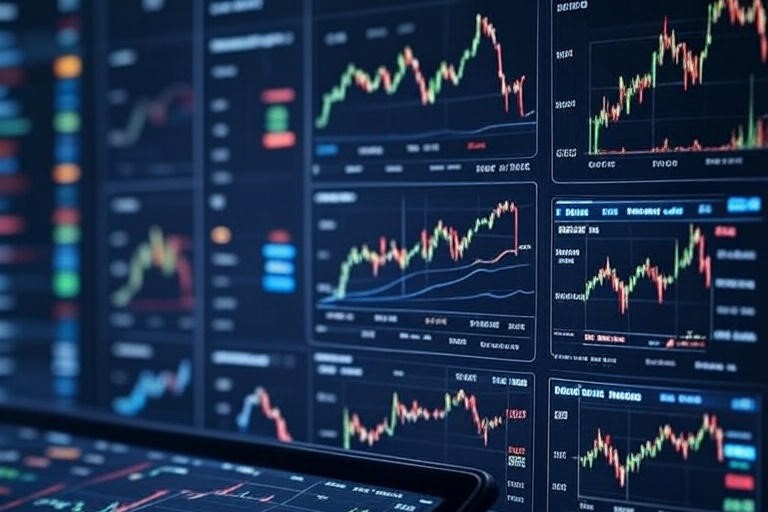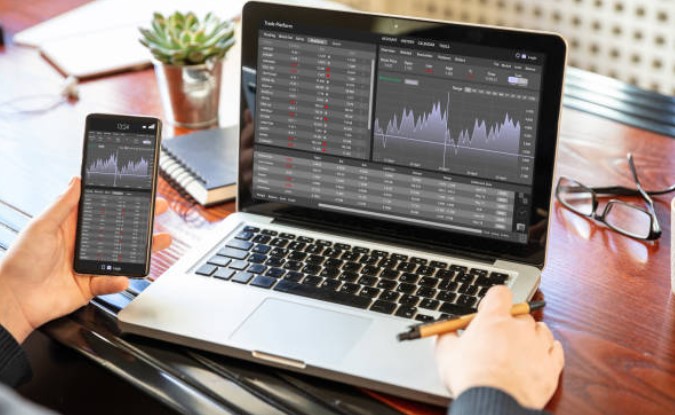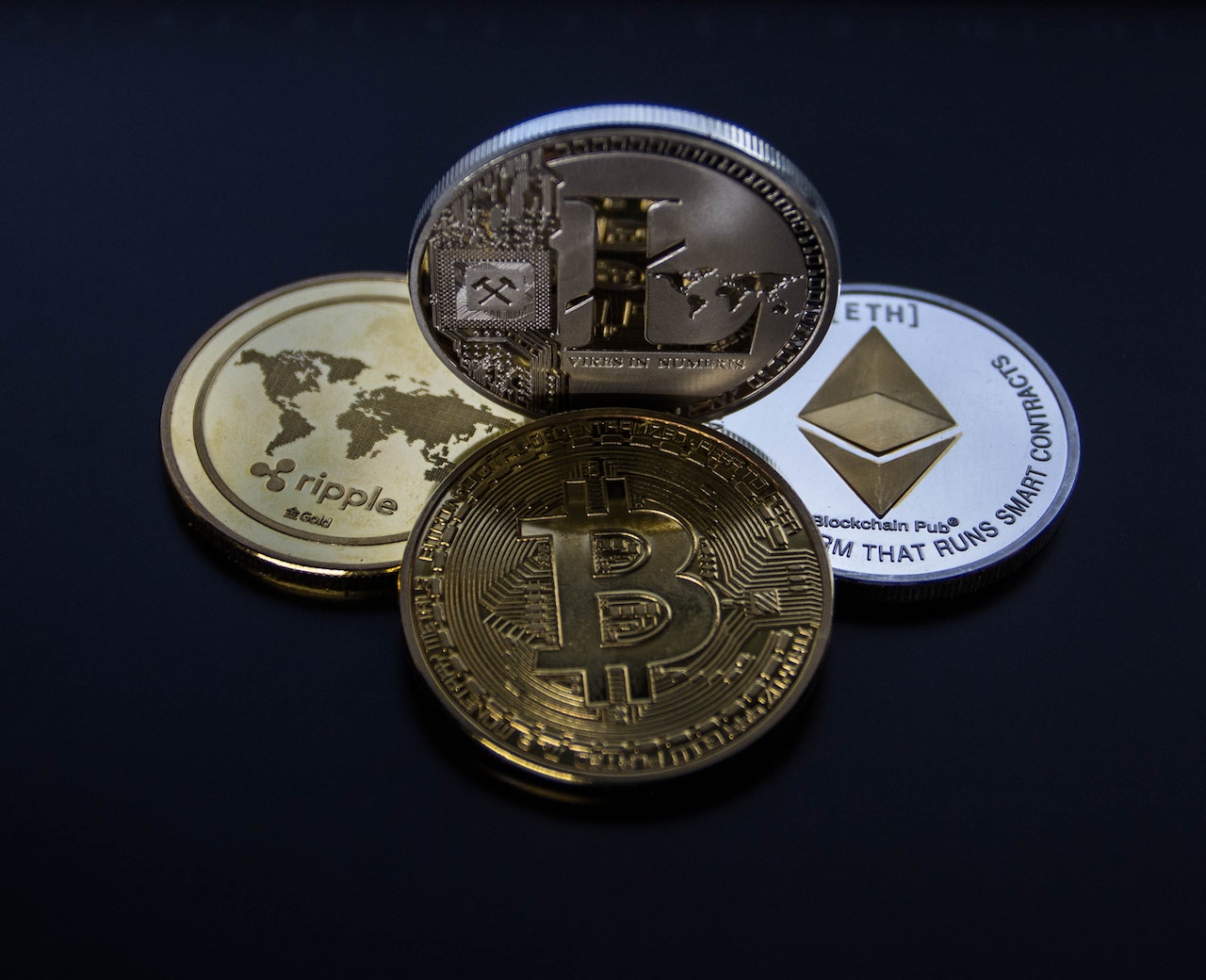
One of the hottest topics in today’s financial world is cryptocurrencies. At the same time, despite all the hype surrounding the potential benefits of earning money using platforms like Bitcoin 360 AI, there are many different criticisms, such as the inconsistency of regulation. In fact, it wasn’t until May 2022 that the crash of a stablecoin called TerraUSD (UST) reignited the call for formal regulation of the cryptocurrency market. In response, two American senators pushed for a new cryptocurrency regulation bill to counter the current patchwork of federal and state regulations in the U.S., which are not always effective in their intentions to regulate cryptocurrencies. In Europe, too, approaches to the regulation of cryptocurrencies already exist. Learn more in our article below.
REACTION TO THE TERRAUSD CRYPTOCURRENCY CRASH
In recent years, the Securities and Exchange Commission (SEC) and the Commodity Futures Trading Commission (CFTC) have taken dozens of measures to regulate cryptocurrencies. However, after the TerraUSD crash, the Treasury Secretary first called on Congress to enact a comprehensive regulatory framework for stablecoins. The argument for this request was that in the early days of social media, there was no regulator which led to many societal problems and had similar risks to the cryptocurrency market. The proposed framework includes tax requirements for digital assets as well as stricter requirements for stablecoins. The framework also proposes provisions on cybersecurity, a potential self-regulatory organization, disclosure requirements, and instructions to the Federal Energy Regulatory Commission to study the industry’s impact on the energy sector.
SEC VS. RIPPLE CASE
A precedent regarding the general definition of crypto assets and their regulation, which should be known to all crypto investors, is the case of Ripple vs. SEC. The SEC has filed a lawsuit alleging that Ripple made an unregistered $1.3 billion security offering by selling the “XRP” token created in 2012. The case is particularly important in the context of regulation, as it could lead to legal consequences for other digital assets. According to the SEC, the sale of XRP resulted in an illegal securities offering. Ripple, on the other hand, argues that XRP is a virtual currency and not an investment contract like a stock. If Ripple doesn’t win the case, there’s a lot at stake for the future of cryptocurrencies. Should Ripple lose the case, most of the cryptocurrencies currently traded in the United States would be classified as securities, resulting in crypto companies having to register with the SEC, resulting in escalating costs and enormous waiting times.
REGULATION: IMPORTANCE, POTENTIAL THREATS, AND PROGRESS
Meaning
Currently, there is no single regulatory authority for cryptocurrencies, neither in the US nor in Europe. Regulation is handled differently by different authorities. The aim of the future, uniform regulation is to increase investor protection and reduce manipulation in the cryptocurrency market. In the case of Bitcoin, the token is considered a commodity in the current draft law and would thus be regulated by the CFTC – other tokens, on the other hand, would be classified as securities and regulated by the SEC. However, regardless of whether the cryptocurrency market is regulated or not, it remains highly speculative.
Threats
Some of the dangers associated with the regulation of cryptocurrencies are centralization and over-regulation. This is partly because it’s not clear what cryptocurrencies should be classified as securities, goods, property, or virtual currencies. The problem with this is that each classification has its own set of rules, which could lead to over-regulation. In addition, too much regulation would destroy the innovative nature of the crypto sector. True innovation can only take place where conditions are as free as possible.
Progress
The greatest advances in the regulation of cryptocurrencies are in Europe based on the MiCa and the Travel Rule (Europe).
- MiCa (Markets In Crypto Assets): This regulation is driven by the European Union. As a result of this framework, the European Union aims to become a global leader in competition and innovation in the financial sector and in providing consumer protection for digital finance.
- Travel Rule: This regulation is about the prevention of money laundering with cryptocurrencies. Transactions are tracked and reported if suspected.
ALSO READ: Advantage And Disadvantage Of Investing In Real Estate
CRYPTOCURRENCY BAN IN CHINA AND RUSSIA: ALSO CONCEIVABLE IN EUROPE?
China
In 2021, China banned cryptocurrency trading and mining, making it the toughest against cryptocurrencies in the world. Then, in 2022, the Chinese government began pursuing blockchain companies and the use of non-fungible tokens (NFTs) as long as they remain under state control. A state-backed blockchain company, the Blockchain Services Network, rolled out an infrastructure that allows individuals and businesses in China to use non-fungible tokens that are not linked to private-sector cryptocurrencies such as Bitcoin or Ethereum.
Russia
Russia has experienced an internal conflict over the status of cryptocurrencies, prompting President Putin to enact a law banning the use of digital assets, including cryptocurrencies, to pay for services and goods. Under the new law, cryptocurrency exchanges and providers are required to refuse transactions where digital payments could be interpreted as a substitute for currency exchange. However, there are exceptions for certain payments based on the final clause of the law. Put simply, the new law means that individuals can buy cryptocurrencies but cannot use them to pay for goods and services.
THE ROLE OF CENTRAL BANK DIGITAL CURRENCIES (CBDCS)
It is clear that the Federal Reserve will introduce a CBDC. In general, CBDC is considered a digital liability of a central bank that is available for public use. As with existing forms of money, a CBDC would give the public the ability to make digital payments. However, this would also be a liability of the central bank, although it is also one of the safest digital assets available, as there are no credit or liquidity risks associated with it.
CBDCs are not the same as cryptocurrencies. Rather, CBDCs are digital versions of FIAT currencies and are influenced by monetary policy, inflation, and deflation. It is therefore not to be expected that CBDCs will replace traditional cryptocurrencies, especially since they have different purposes. We also point out that CBDCs will be far more stable than other cryptocurrencies. CBDCs are understood less as classic cryptocurrencies. It is quite possible that the cryptocurrency economy and CBDCs, as well as stablecoins, can coexist based on the chosen policy.
POSSIBLE CONSEQUENCES: CRYPTOCURRENCY PRICES AND MARKET CAPITALIZATION IN RESPONSE TO REGULATION
Compared to cryptocurrencies, when trading stocks in general, investors know what to expect, as they come with strict regulations to protect investors, and regular profit forecasts and actual earnings reports are issued. When trading cryptocurrencies, there is no such protection, which means there is less security and greater risk. As awareness of cryptocurrencies has evolved, governments have also developed an awareness of digital assets and their potential benefits to the economy. For example, African countries such as Nigeria, Ghana, and South Africa have already introduced CBDCs. In fact, over 100 countries, which account for 95% of the world’s gross domestic product (GDP), are considering adopting their own digital currencies.
Many proponents of cryptocurrencies see regulations as something positive, as established corporations and funds could wait to invest in cryptocurrencies due to a lack of regulation and could invest in the crypto asset class after regulation. In addition, it is argued that the introduction of regulations for investing in cryptocurrencies would lead to transparency across the asset class, which is crucial for institutional investors as it helps to create risk profiles. Other arguments for the positive effects of the regulation are that the price is unlikely to stabilize until there are clear regulations for trading cryptocurrencies and there is no reporting on them. This is not an acceptable situation for large financial firms. Institutional investors are expected to be more likely to engage in cryptocurrency investments with the implementation of regulations, which could lead to further stabilization of asset prices. However, the extent of the investments and the exact effect cannot be clearly assessed.
We expect regulation to have a positive impact on the crypto market.
Because while approaches to regulating cryptocurrencies are changing, there is still no clear indication of how and when exactly this will happen. Still, there are clear signs of change, such as the ban on cryptocurrencies in China and Russia and the increased emphasis on the adoption of CBDCs. Although there is still no clear evidence of the exact extent of cryptocurrency regulation, it has been made clear that something needs to be done to protect investors. It remains to be seen to what extent the regulatory framework can be implemented in the long term and what effect it will have on the market.
 Harris campaign chair Jen O’Malley Dillon released a memo last Sunday stating that the overall total raised by the Democratic National Committee and the Harris for President group together with other joint fundraising committees, has reached $540 million. She added that even before VP Kamala Harris made her acceptance speech last Thursday, the amount had already crossed the $500 million mark.
Harris campaign chair Jen O’Malley Dillon released a memo last Sunday stating that the overall total raised by the Democratic National Committee and the Harris for President group together with other joint fundraising committees, has reached $540 million. She added that even before VP Kamala Harris made her acceptance speech last Thursday, the amount had already crossed the $500 million mark. The memo stated that the fundraising campaigns for VP Harris has grown effortlessly ever since Pres. Biden withdrew his bid for reelection and endorsed her as his replacement. Since July 21, 2024 grassroots donations have been pouring in, to support Harris’ campaign in the battle against Trump’s own reelection bid to regain power as 47th president of the US.
The memo stated that the fundraising campaigns for VP Harris has grown effortlessly ever since Pres. Biden withdrew his bid for reelection and endorsed her as his replacement. Since July 21, 2024 grassroots donations have been pouring in, to support Harris’ campaign in the battle against Trump’s own reelection bid to regain power as 47th president of the US.



 Cryptocurrency markets pulse with opportunity, but regulations are tightening. Governments worldwide are stepping in to oversee digital assets, with agencies like the SEC in the United States and similar bodies elsewhere setting rules to protect investors and ensure market stability. These changes impact crypto arbitrage, a strategy where traders profit from price differences across exchanges. As regulations evolve, so do the ways traders navigate this dynamic landscape. Understanding the interplay between policy and profit is key for traders and advocates pushing for fair, transparent markets.
Cryptocurrency markets pulse with opportunity, but regulations are tightening. Governments worldwide are stepping in to oversee digital assets, with agencies like the SEC in the United States and similar bodies elsewhere setting rules to protect investors and ensure market stability. These changes impact crypto arbitrage, a strategy where traders profit from price differences across exchanges. As regulations evolve, so do the ways traders navigate this dynamic landscape. Understanding the interplay between policy and profit is key for traders and advocates pushing for fair, transparent markets. Political events play a significant role in shaping global financial markets. Political decisions can have immediate and long-term economic effects, from elections to policy changes. This dynamic relationship between politics and finance is more evident than ever.
Political events play a significant role in shaping global financial markets. Political decisions can have immediate and long-term economic effects, from elections to policy changes. This dynamic relationship between politics and finance is more evident than ever.
 Taragon Opulon AI has fascinating and alarming potential influence on politics. On the one hand, this technology might enable people to make better decisions by means of more informed knowledge, therefore empowering them and strengthening government. Conversely, there are worries about possible abuse like public opinion manipulation or the development of deepfakes to dissemin false information.
Taragon Opulon AI has fascinating and alarming potential influence on politics. On the one hand, this technology might enable people to make better decisions by means of more informed knowledge, therefore empowering them and strengthening government. Conversely, there are worries about possible abuse like public opinion manipulation or the development of deepfakes to dissemin false information.

 The bill specifically states prohibiting private paramilitary organizations from engaging in training, patrolling, or participating in activities that interfere with government actions or public exercise of constitutional rights.
The bill specifically states prohibiting private paramilitary organizations from engaging in training, patrolling, or participating in activities that interfere with government actions or public exercise of constitutional rights. Although the rioters and demonstrators involved in the Januar o6 siege of the Capitol in 2021 did not use firearms or other deadly weapons they are examples of citizens militia groups who had violent intentions of disrupting Congress from confirming t e election of
Although the rioters and demonstrators involved in the Januar o6 siege of the Capitol in 2021 did not use firearms or other deadly weapons they are examples of citizens militia groups who had violent intentions of disrupting Congress from confirming t e election of  Hustlers University is an online training institute founded by theTate brothers, Andrew and Tristan, who developed programs on modern methods of wealth creation. The online university has a large following in India, where many of the country’s young individuals aspire to become successful ecommerce entrepreneurs,
Hustlers University is an online training institute founded by theTate brothers, Andrew and Tristan, who developed programs on modern methods of wealth creation. The online university has a large following in India, where many of the country’s young individuals aspire to become successful ecommerce entrepreneurs,  Given the rapid growth of the ecommerce market in India, the parliament of India passed the Consumer Protection Act, 2019 and Consumer Protection (E-commerce) Rules. The new regulations are designed to address concerns regarding consumer protection and safety, as well as preserve basic consumer rights amidst the continuing growth trend of ecommerce in the nation.
Given the rapid growth of the ecommerce market in India, the parliament of India passed the Consumer Protection Act, 2019 and Consumer Protection (E-commerce) Rules. The new regulations are designed to address concerns regarding consumer protection and safety, as well as preserve basic consumer rights amidst the continuing growth trend of ecommerce in the nation.
 “The personal injury
“The personal injury  Lawsuit loans aren’t actually loans because the company will have to collect payment from the proceeds of the lawsuit once all the legal processing and documentations have been completed. Accepting pre settlement funding is one way that a personal injury victim can have early access to the settlement money.
Lawsuit loans aren’t actually loans because the company will have to collect payment from the proceeds of the lawsuit once all the legal processing and documentations have been completed. Accepting pre settlement funding is one way that a personal injury victim can have early access to the settlement money.











 Real estate is the most common type of asset in the world. But it has a lot of advantages and disadvantages to consider before investing.
Real estate is the most common type of asset in the world. But it has a lot of advantages and disadvantages to consider before investing.